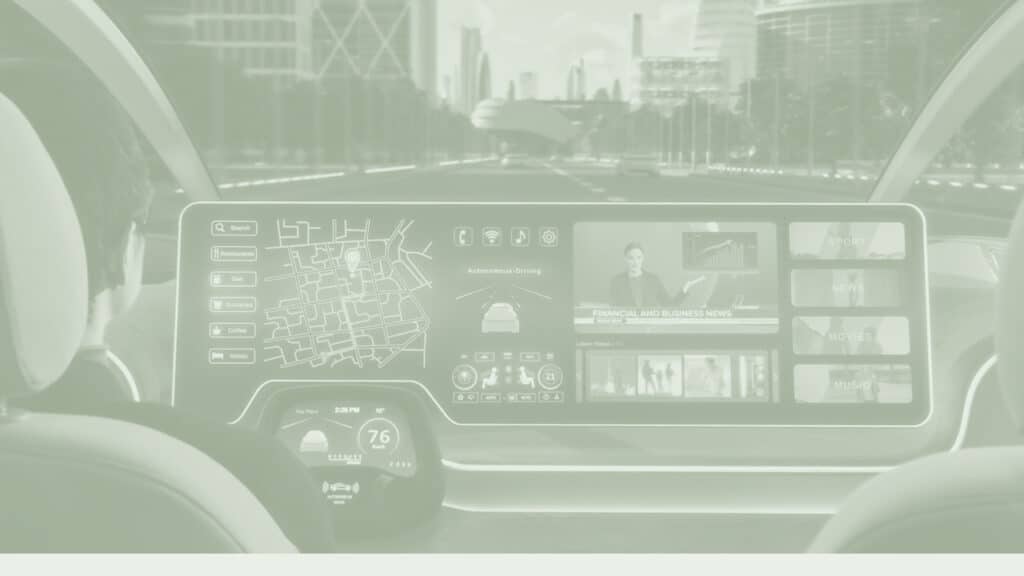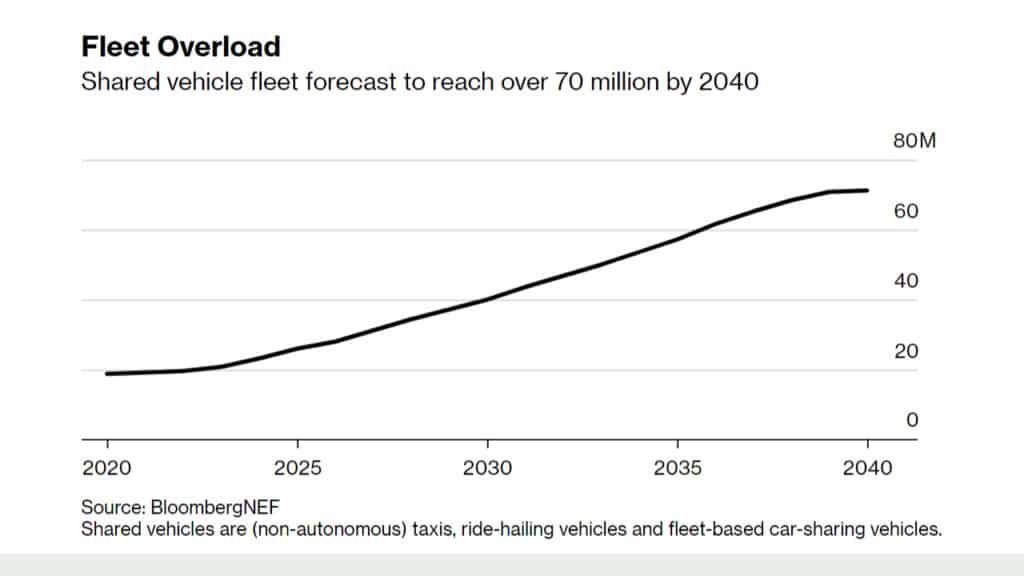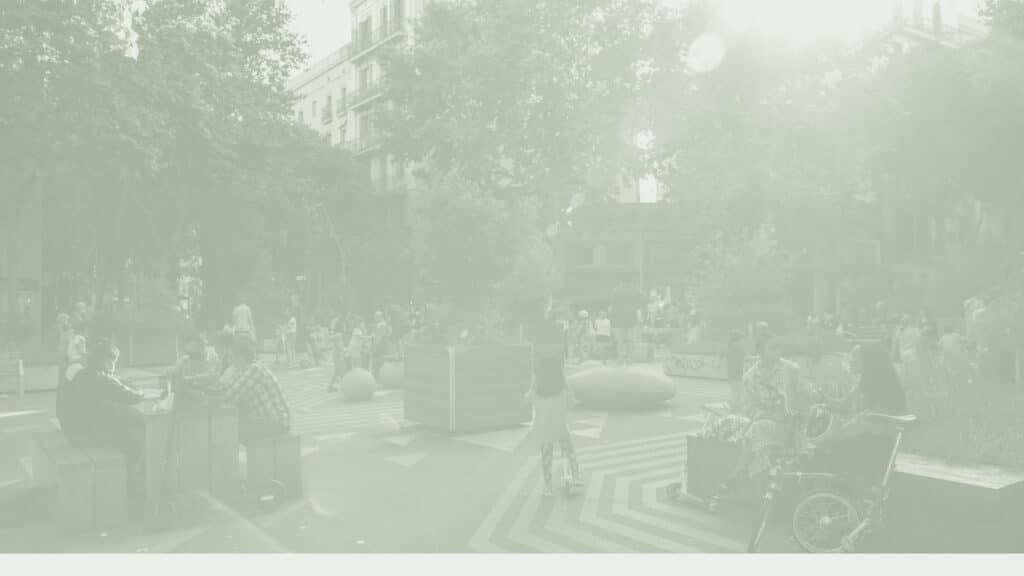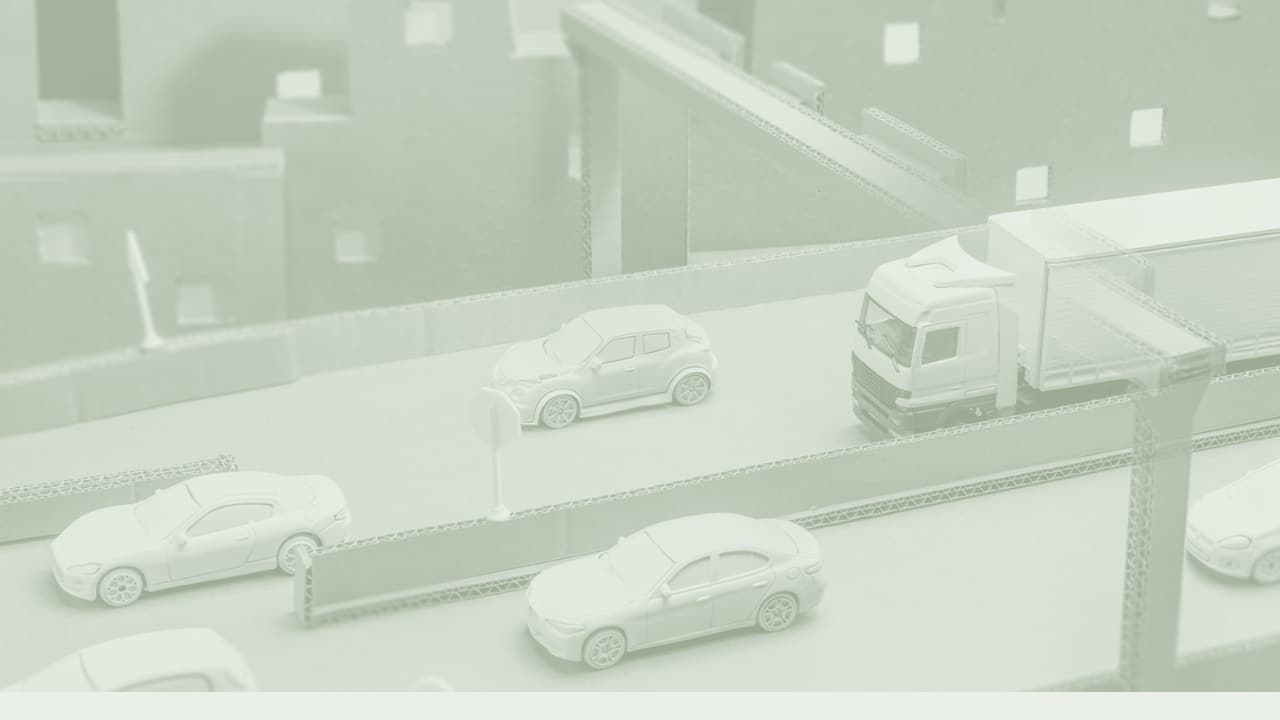This post is part of "Periscopio", the Linkedin newsletter which every week delves into Futuro Prossimo themes, and is published in advance on the LinkedIn platform. If you want to subscribe and preview it, find it all here.
Imagine a future neighborhood, I don't tell you what year. On one side, people with helmets cross a cycle path on two wheels: some deliver flowers (or they are sandwiches, I can't see clearly), others go to work in shirts, with their jackets in the basket in front. On the other side of the street, restaurant tables on a wide sidewalk. In the middle, a lane dedicated to cars: almost all electric taxis that go back and forth, and a bus that connects the neighborhood with similar ones throughout the city every 10 minutes. Cars parked on the street? Zero.
This could be the neighborhood of the not-too-distant future if we address an important and unresolved issue: the space we waste on individual vehicles. There are approximately one billion cars in the world: nearly 300 million in the US alone, slightly less in Europe. In Italy there are 37 million, one for every 1,65 inhabitants. 95% of the time, the average car sits idle in a garage, in a driveway, or on the curb on the street.
It is not only an economic disaster (cars are among the most expensive things people own) but it is also a gigantic waste of space, to the detriment of the quality of life and the planet.
An alternative? Share. REALLY.
Private companies providing public transportation to customers have grown in recent decades. People can now open an app, walk up to a parked vehicle, unlock it with their phone, and pay only for the time spent driving. The car sharing we know today won't solve the problem of climate change or make cities more livable, but it could take us to the next level.
One day, car-sharing cars will outnumber car owners in cities. It will take time, of course, but mainly it will require courageous political changes and disincentives to private cars.
A service, not a good

Today cars are a necessary element in the daily life of many people in the world: they are joy and pain, they offer comfort but they also become a condemnation for expenses and the difficulties of parking in crowded places. The car sharing of the future will only take the positives, completely eliminating the disadvantages. And it will change the face of the context in which we live.
We will integrate car sharing into an otherwise car-free life. Depending on the day, we will walk or use public transport, ride a bicycle or scooter, or hail a taxi to go where we need it.
It's the promise of a sharing economy based on services, not goods. If an (expensive) car can be shared among many, it stops being a product, and becomes a service. It no longer matters what it is: it matters what it does.
The subscription economy is not a trend destined to change. Car sharing companies continue to grow strongly. A survey promoted by Turo, one of the operators in the sector, shows that 13% of its current customers do not have a car, and 17% do not plan to buy one in the next 5 years.
Car sharing: we are in full take-off
The pandemic, I will never tire of repeating it, has accelerated many trends, and has exposed some primary needs that were crushed by our daily lives. One above all is the need to move "lightly". New business models and new needs to balance life, travel and work.
Within the 2040 a research by BloombergNEF predicts that shared vehicles will number over 70 million in the US. It's only the beginning.
Operators such as Zipcar, Getaround, Turo, Car2Go, Ubeequo and others overlap in the cities of the planet and in areas with high population density. Cities are the battleground, where traffic and population nodes are all coming to a head.
The showdown is approaching: from there, the road will be all downhill.

Hopefully for the environment too: the environmental advantages of car sharing are much greater than the simple reduction of harmful emissions from cars.
Increasing the use of public transportation to decarbonize the transportation sector overall is a frequent point of discussion among environmentalists. The transport industry is by far one of the largest sources of emissions: moving away from a culture centered on cars (yes, even electric ones) has enormous consequences.
Car sharing will be the gateway to future mobility.
The transformation of cities
Public transport users produce less traffic, and the reduction in parking leads to an even greater optimization of construction in historic centres. All that space left free by car parks is transformed into restaurants, services and even public offices. The result? Even less use of the car. In other words, car sharing has the potential to start a virtuous cycle.
After all, what's not to like in a city where you have more options for entertainment, shopping and dining?
The examples are already many, from plan veil of Paris ai “Superblocks” in Spain, passing through the kilometers and kilometers of streets returned to pedestrians in Seattle. We can seriously start it all by discouraging people from owning private cars, and by encouraging the use of car sharing.
Three moves, but radical: a, skyrocketing parking prices with revenues poured into public transport. Due, a lane dedicated to car sharing and electric vehicles. Three, all kinds of incentives for multimodal transport.
Things? Practically the Netflix of travel. Subscription services (like that of the Finnish startup MaaS Global) offer access to buses, trains, taxis, bikes and car sharing for a fixed monthly fee. Bingo.

How far away is this future?
The limit is political and cultural, as often happens. For many people, even the simple fact of owning a car, even if you don't use it, still has too much value. It's a snake chasing its tail: car sharing will improve cities, but as long as the cities are so badly done there are authentic urban "deserts" far from the center and poorly served by public transport.
For those who live there and go to work there is no alternative to the car: imagine people like this, already forced to waste two hours in traffic every day, also affected by an increase in parking.
However, things will change quickly.
For Generation Z the notion of ownership is not as important as for us previous generations. Whether it's a house or music or clothes or cars, they are comfortable living in an economy in which the aim is to truly "own" only one thing, the most important of all: one's time.
Well, it will be Generation Z that will bring about the end of the myth of car ownership. Of the "ritual" passage to adulthood with the first car. Of the obsession with using a car even to go to the nearby newsstand. I can't tell you the year, but certainly those born between 1995 and 2010 will live in one of those neighborhoods I described at the beginning.
And maybe they'll be a little happier.


